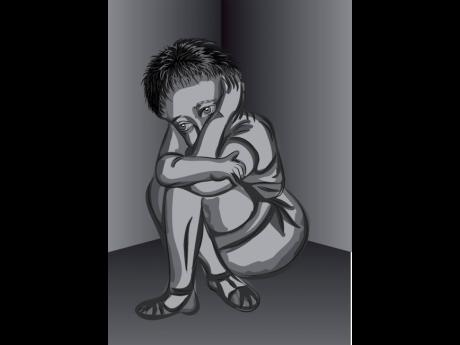Letter of the Day | The effects of domestic violence on children
THE EDITOR, Madam:
There is a growing concern over what seems to be an increase in domestic violence and the effects that it is having on the nation’s children. While it is widely accepted that this is not a new phenomenon, the graphic and severe outcomes of such behaviours have become of great concern to every well-thinking Jamaican.
The impact of such behaviours goes far beyond the parties who are directly involved. Our women are many times the main victims of these behaviours. However, our children who are witnesses to these unhealthy behaviours are significantly affected as well. Many of the children who have witnessed these kinds of acts have been affected psychologically, to the point where it has resulted in many different types of maladaptive behaviours.
It is of great concern to the Jamaica Association of Guidance Counsellors in Education that acts of this nature can potentially be viewed as an acceptable norm by many of our children and be perpetuated in their individual lives during adulthood.
According to the American Psychological Association, “Witnessing violence, in general, has been associated with emotional, behavioural, and learning problems in children, with children’s susceptibility affected by developmental level, chronicity of exposure, physical closeness to the incident, and emotional closeness to the victim. On the basis of those parameters, one may conclude that witnessing violence between parents is a particularly insidious event. It is most likely to occur in the home, the one environment generally associated with safety and protection of the child. It is not surprising; therefore, that exposure to marital violence has been associated with a variety of problems in children.”
Address root cause
The effects that domestic violence is having on our children have been seen in the way these children interact with their peers at school. Some notable signs include, but not limited to, withdrawn, aggressive behaviours and underperformance. Guidance counsellors at all levels of the education system have been responding to these issues through counselling interventions. It is important, however, for an approach to be explored that will address the root causes of these problems.
The recommendation that is being proposed by the authorities, for reports to be made to the police when issues of domestic violence are identified, is severely inadequate in dealing with this very serious issue of domestic violence.
It is my belief that there needs to be a more wide-based, in-depth approach, that includes community interventions, where counselling support is provided and individuals are taught conflict resolution skills that will assist them in becoming more rounded individuals.
The society has a civil and moral responsibility to respond in ways that will reduce the frequency of such behaviours and, by extension, provide a more healthy society for the future generation.
These are not the kinds of behaviours that we want to be perpetuated by future generations. So we have to act now by making our voices heard in condemning these destructive behaviours that have become so pervasive in our society
RICHARD SKYERS
President
Jamaica Association of Guidance Counsellors in Education

